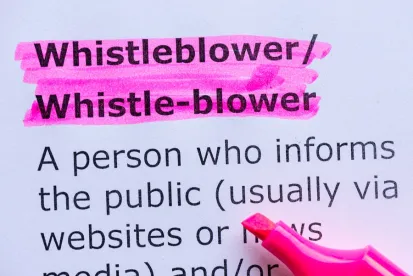Is the California Supreme Court about to make it more difficult to dispose of whistleblower retaliation claims? That may well be the case. The Supreme Court has agreed to answer the 9th Circuit Court of Appeals’ question about California law and unlawful retaliation against an employee in Lawson v. PPG Architectural Finishes, Inc. In particular, the 9th Circuit asks the California Supreme Court to set the evidentiary standard for whistleblower retaliation claims brought under California Labor Code section 1102.5.
The Lawson case involves a manufacturer of paint, stains, caulks, and other products. Mr. Lawson was a territory manager whose duties included merchandising products to home improvement stores and ensuring that the company’s displays were stocked and in good condition. Mr. Lawson was allegedly directed by his supervisor to handle a product in a way that fraudulently removed a slow-selling product from its inventory. Mr. Lawson told his supervisor he would not do this and reported the directive to the company’s ethics hotline on two separate occasions. The second report to the ethics hotline resulted in an investigation. At the same time, Mr. Lawson received poor ratings for his work, was put on a performance improvement plan, and eventually terminated.
Mr. Lawson alleged in his complaint against the company, filed in the United States District Court, that he was retaliated against as a whistleblower.
The trial court in Lawson applied the McDonnell Douglas test which employs burden-shifting between the plaintiff and the employer. The McDonnell Douglas test originated in the context of Title VII, the federal statute governing workplace discrimination, harassment, and retaliation. The trial court concluded that the plaintiff failed to carry his burden to raise triable issues of fact regarding pretext and granted the employer’s motion for summary judgment.
Mr. Lawson argued in his appeal to the 9th Circuit that the trial court should have applied the evidentiary standard outlined in California Labor Code section 1102.6. That section states that once it has been demonstrated by a preponderance of the evidence that the whistleblower activity was a contributing factor in the retaliation against the employee, the employer’s burden of proof is to demonstrate by clear and convincing evidence that the alleged action would have occurred for legitimate, independent reasons.
The 9th Circuit noted in its question to the California Supreme Court that application of the McDonnell Douglas test to whistleblower claims under Labor Code section 1102.5 “seems to ignore [a] critical intervening statutory amendment” by which the California legislature established the evidentiary burdens of the parties participating in a civil action or administrative hearing involving a violation of the statute. Though this statement by the Circuit seems like a decision, the 9th Circuit pointed out three published California appellate court decisions that expressly applied McDonnell Douglas after the amendment. This contradiction between California’s statute and the court rulings is the root of the 9th Circuit’s question.
Critically, if the California Supreme Court rules that the evidentiary requirement under Labor Code section 1102.6 applies, disposing of whistleblower retaliation claims prior to trial will become extremely difficult due to the high evidentiary standard applied to the employer.



 />i
/>i

